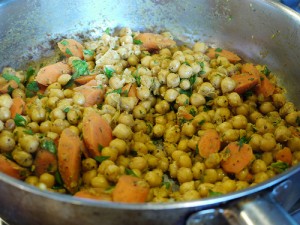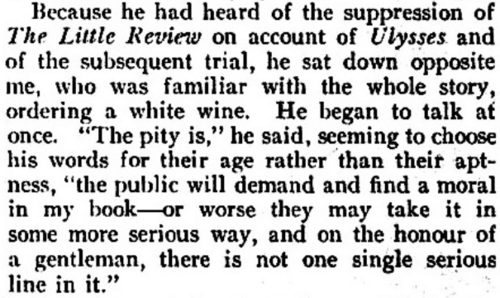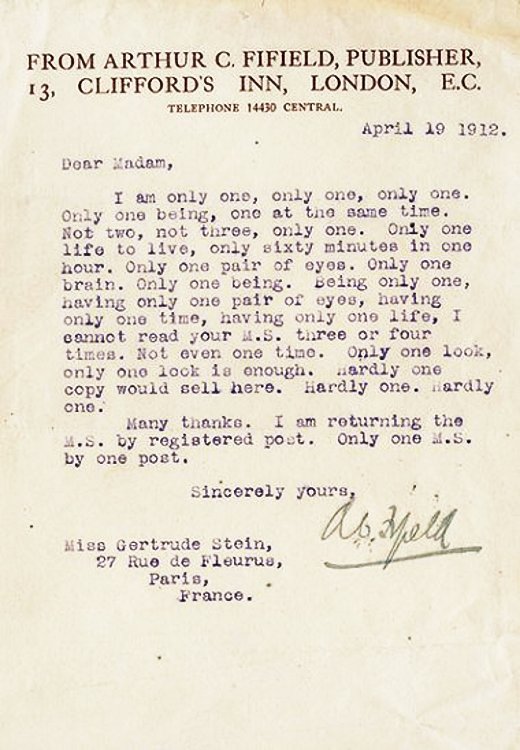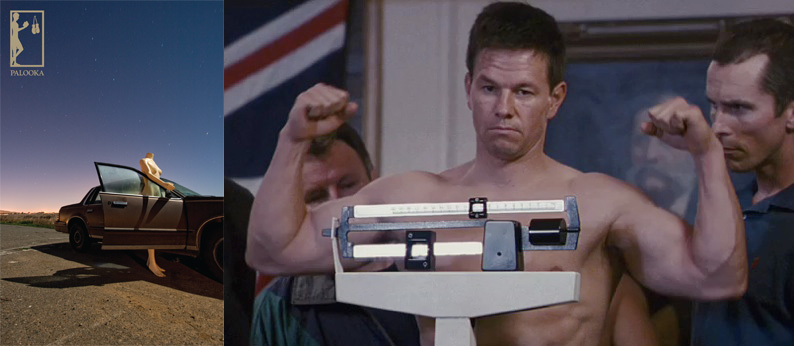Are all perceptions of inequality equal? If not, is gender discrimination worse than race discrimination, or sexual orientation discrimination? What about income, or shoe size? Or if they are all equal, who isn’t inequal? I’d like to see more publication of work by glass.
“Last April I hurt my knee doing Brazilian Jiu Jitsu” : 6 Questions W/ Jesse Ball
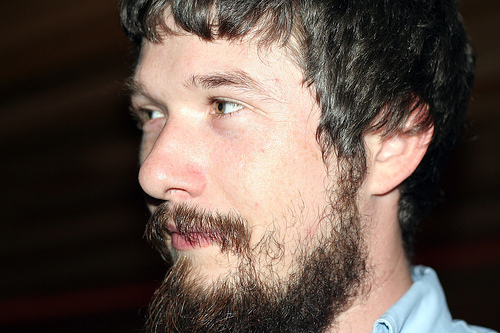
[Jesse Ball’s latest novel, The Curfew, will be released from Vintage on June 14th. Last month Shane Jones caught up with Jesse about the new book via email. – ed.]
SJ: When I first interviewed you back in 2007 we spoke a little about how fast you write your books (some in several weeks) and I’d like to go back to that discussion. Specifically, how fast your books feel to a reader (the latest feels even faster than your first two books). I literally could not stop reading THE CURFEW because it felt like I was being pulled along, my eyes kind of racing over the words. Is this something you consciously try to implore in your novels? Was THE CURFEW written in the same short-time/style as the others?
JB: Even more quickly, actually.
I feel very strongly the burden that a writer ought to tell a tale and that the writer should do it so properly and well that the reader forgets himself or herself. There are many other things I do (or try to do), but that is the first.
Recipes for Writers: Chickpea Curry
This is a new feature I might do — easy things to cook that are great. I figure I’m picking up where Mark Bittman is (sadly) leaving off.
The first recipe is an all-star one that I can make some version of at almost any time without shopping, provided I have some canned chickpeas (or white beans, or dried lentils, or I’m sure canned black beans would work). I usually have it with rice, which I always have in the house.
The first step is to chop (smallish) and saute whatever hard vegetables you have on hand. For me, this usually means some combination of carrots, onions, and maybe celery, though I’ve made it without some of those too. You can use anything that’s pretty hard. If you use potatoes or sweet potatoes, you might want to chop them extra-fine or even grate them. So, heat a few tablespoons of vegetable oil in a pot, add your chopped vegetables, and saute stirring occasionally for 5-10 minutes, until softened and maybe browned, or longer if you want to caramelize them. But they will keep cooking a little throughout the process. At the end of sauteing, throw in minced garlic if you like. Minced fresh ginger is good, too. If you have tomato paste, add a tablespoon or so now.
Next, add a can or two of drained and rinsed chickpeas (or other beans), as well as any soft vegetables you have around (except soft greens, which I’ll get to). This could mean eggplant, mushrooms, fresh or canned (with juice) tomatoes, summer squash. Canned tomatoes are probably the one I most frequently add. Then add some liquid, a cup or two depending on how much stuff is in the pot, enough to make it a little stew-like so it won’t burn. Tomato sauce, chicken broth, water, whatever you have. Then add curry powder, salt and pepper to taste. If you don’t have curry powder, add some combo of cumin, coriander, chili powder, cayenne, ground mustard, smoked paprika, garlic powder, onion powder.
Bring it all to a boil and then turn down immediately to a slow simmer. Stir occasionally. Cook until everything is at a nice, eatable consistency, say twenty minutes. At this point, stir in fresh or frozen spinach or something similar, if you have it (I don’t always), and cook until cooked (wilty-looking). If you have any parsley, cilantro, scallions, basil, or chives, chop some and add them. Then it is ready to eat with rice or any other cooked grain that you have cooked. In a pinch I have eaten it with toast. I would eat it with tortillas, if it came to that. It is really good with chili paste or hot sauce.
Again, this is really adaptable. Maybe all you have is carrots and chickpeas. That will still be really delicious if you add enough spice. The great thing about this dish is that you don’t have to have anything fresh–canned beans and tomatoes and some frozen spinach along with your dried spices work great. Leftovers are even better than the first go-round.
Everything Happened All At Once
It feels like there is a lot of literary news today.
McSweeney’s is launching a cookbook imprint. When I first read that, I thought it was a joke. McSweeney’s also shares some good news about publishing.
There is a brilliant, long form investigative article in The New Yorker about Scientology. A new bar has been set. There is also fiction from Mary Gaitskill.
Another magazine has decided to charge for submissions. Robert Swartwood is on the case. The publisher responds. The world continues to turn.
I saw Kara Candito read at AWP and was blown away so I’m going to share some of her writing that’s up at BLIP.
AWP happened. You loved it. You hated it. There was a Literature Party and an amazing deejay who felt what she was spinning so hard she jumped up and down to the beat. There was dancing. My god, there was drinking. You didn’t go. You were glad not to go. You wish you could have gone. You wish you hadn’t gone. Your liver hurts. You are sweating. You didn’t want AWP to end. Did you see that? What was his name? That really happened. You wish that had happened. The recaps abound. They are amusing to read.
Emily St. John Mandel writes about bad reviews.
The Kartika Review has launched The 500 Project which will profile 10 Asian writers from each of the 50 states. I am really intrigued by this idea of using these profiles to start toward a canon of contemporary Asian literature.
Crowds might be able to write as well as individuals.
Laura Ellen Scott’s Curio is being serialized by Uncanny Valley. I think you will enjoy it.
Is the Internet free? Perhaps not so much.
Cathy Day offers some valuable advice for a linked stories workshop and Dylan Landis shares some lessons on linked stories. This is a tiny preview of a post I am working on about how to shape a short story collection. I don’t know how. That’s what I’m writing about. It might not be the most useful post in the world.
David Quigg suggests some edits to “The Problem With Memoirs.”
There is a new issue of Bookslut which includes a feature by Daniel Nester and Steve Black about the lifespan of a literary magazine. You should also check out this piece about women and criticism.
Anis Shivani thinks Freedom is overrated. He works for AOL now though, for free, so he might not have the last laugh. Toward the end of his essay, Shivani writes, “The problem with realism is also that it ends up being conservative, and even pessimistic. This is because it wants to rule out unpredictability to the extent possible, believes in a stable social order (otherwise why write realistically?), and wants the end to be internally and formally consistent with its premises, once they have been laid out.” You know how I feel about things that begin, “The problem with…” There is no problem with realism though their may be a problem with Freedom. I haven’t finished the book yet. I will come back, Shivani! We will talk realism. Just you wait.
A Conversation with Jonathan Starke, Co-Editor, Palooka
I recently had the opportunity to meet Jonathan Starke, who was visiting Eastern Illinois University as a visiting writer and we sat down to talk about the new magazine he’s editing, Palooka.
What is underdog excellence?
It’s the showcase of skills by writers who aren’t quite making it in the top journals. Publishing in the literary world is a hard thing to do, especially if you don’t have a name or connections. But there are so many writers and artists out there who have no MFA, no name, no connection, or only choose to publish in smaller journals, and these are the kinds of people we consider underdogs. They might be on the cusp of breaking through or not even close, but what doesn’t change is the fact that these unknowns are creating work that is both hard-hitting and pretty impossible to forget, even days, weeks and months after seeing them for the first time.
If you found J.D. Salinger lying on a pile of coats at a party, and he invited you to leave the party — and your life — with him and go away together forever, what would you say?
At the Electronic Book Review, Curtis White pretty much nails the problems with David Shields’s Reality Hunger: ‘At best, it is the sort of call to arms that comes from an editor saying, “Why shouldn’t we do a call to arms this season? I think it’s time for that again. In the spring, of course. I don’t see this as a Christmas book.”‘

